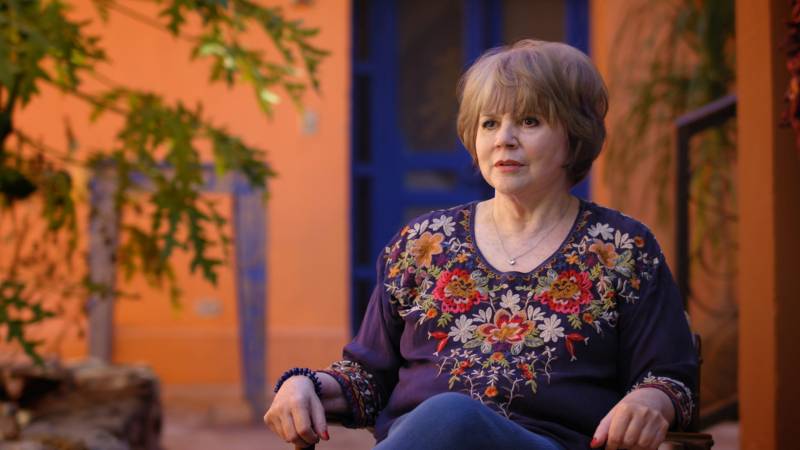When Linda Ronstadt is asked about her incredible career—selling over 100 million records, winning 10 Grammy Awards, being inducted into the Rock ’n’ Roll Hall of Fame—it’s only a matter of minutes before she starts talking, instead, about other people’s music. Whether it’s the poetry of the McGarrigle Sisters, the lush arrangements of Nelson Riddle or the Cajun interpretations of Ann Savoy, Ronstadt, with an ethnomusicologist’s insight and detail, wants her fans to know that there’s more to her music than “You’re No Good.”
No music is more personal to Ronstadt than the music of Mexico; the corridos, son jarochos and rancheras which she recorded brilliantly on a pair of albums, Canciones de Mi Padre and Mas Canciones, in the 1980s. So it’s only natural that a documentary, Linda and the Mockingbirds, captures her love and knowledge of the music while shining a light on those that came before her—and those who will follow.
Linda and the Mockingbirds follows Ronstadt as she travels by bus to the small town of Banamichi in Sonora, Mexico, where her grandfather was born, accompanied by young singers from the Richmond nonprofit Los Cenzontles. Joined by fellow rock legend Jackson Browne (“If Linda Ronstadt invites you to go to Mexico, I don’t need to know any more than that. It’s go,” he says in the film), she’s able to not only trace the regional roots of her family’s music, but to show locals how far it’s traveled.
Linda and the Mockingbirds is about much more than music. It doesn’t shy away from heartbreaking stories of the United States’ immigration policies that separate families, or its discrimination against the Mexican people. Yet through its interviews with those living with the complexities of being simultaneously Mexican and American, and in its vibrant performances, it also showcases an incredible musical history that can bridge our divides.


